Root Your Culture in Values and Watch it Grow
September 2, 2020| BY: Lori Chelius MBA/MPH
“Change culture and you change lives. You can also change the course of history. Many well-meaning social activists overlook this essential fact. They focus relentlessly on strategy, but strategy means nothing to our bodies and our lizard brains. When strategy competes with culture, culture wins–every time.”
~Resmaa Menakem, My Grandmother’s Hands
No one can dispute Valorie Kondos Field’s record of winning.
During her 29 years as head coach of the UCLA women’s gymnastics team, she led her team to seven NCAA championships, 22 regional championships, and 18 Pac team championships. In her TED Talk “Why Winning Doesn’t Always Equal Success”, she describes a complete transformation in her coaching style. In her own words, she described how when she first started, she acted like a coach whose sole purpose was to win and became “tough-talking, tough-minded, relentless, unsympathetic, bullish, unempathetic and oftentimes downright mean.”
Sparked by feedback from her athletes who wanted to be “coached up, not torn down”, Kondos Field fundamentally transformed her approach to coaching. Her new approach was rooted in a coaching philosophy that her role was to “develop champions in life through sport.” She describes how trust was foundational to her approach—and it was built through “patience, respectful honesty, and accountability.”
She knew that if she did this well enough, it would translate to the competition floor. And it did. Her record speaks for itself.
Anyone who has been involved in sports understands this. Team chemistry creates magic. It creates environments where the whole is so much more than the sum of its parts. I have experienced this as an athlete and witnessed this as a coach.
The trust built by Kondos Field also laid the foundation for one of her athletes sharing with her that she had been sexually abused by Larry Nassar, the former USA gymnastics team doctor who was eventually convicted of being a serial child molestor. The trust she created went way beyond the gymnastics mat and helped create an environment where the athlete felt safe enough to share what had happened to her.
At Origins, we like to say that a trauma-informed approach is not a checklist of activities, but a transformation of culture. So what does any of this have to do with culture?
Kondos Field’s transformation was, in many ways, really about culture-building. In her talk, she describes how she “knew nothing about how to develop a team culture” in her early years as a coach.
Even though culture is at the heart of a trauma-informed approach, it can often feel abstract or hard to operationalize. One definition of culture is a “set of shared attitudes, values, goals, or practices that characterize an institution or organization.” All organizations, communities, and families have a culture, whether it has been created intentionally or not. Part of being intentional is articulating these values that really underlie your culture.
As said by Resmaa Menaken in My Grandmother’s Hands, “When strategy competes with culture, culture wins – every time.”
So much of what Kondos Field did in creating that culture was to be explicit and intentional about her coaching philosophy—developing champions for life–and the values that underlie it, including the role of trust.
We discussed all of this on the recent webinar “Practical Tools for Building a Trauma-Informed Culture” on Tuesday, August 18th. This webinar was part of the ACEs Connection “Better Normal” series hosted by ACEs Connection.
In a similar format that is used in our training and consulting packages, participants broke into small groups and were given an activity to guide discussion around values within their setting. You can access the recording of the webinar here.
Participants shared themes around the importance of relationships and connection and the importance of maintaining connection in the current environment. Another common theme was the role of trust, safety, and transparency and some of the challenges of supporting transparency in rapidly changing environments. Others shared some of the challenges of staying focused on self-care and team-care while supporting the values of hard work, giving back and excellence. Other themes that were discussed included the challenge of repairing (versus creating) culture and the role of leadership buy-in. Others noted how these themes can be applied to other settings such as parenting (yes, families have a culture!)
In our training and consulating packages, we explore the critical role of culture in implementing a trauma-informed approach and provide tools to help you intentionally develop the culture in your own unique setting. With a focus on leading a resilient culture, we support leaders who want to integrate a trauma-informed approach in their setting. Topics include an overview of the key concepts behind a trauma-informed approach to establish a common language within the organization with an ovearll focus on translating those concepts into action.
Contact us today to learn more about how you can be an agent of change within your organization or community. The time is now and the person is you!







 Getting Started: A Guide from Trauma to Resilience
Getting Started: A Guide from Trauma to Resilience